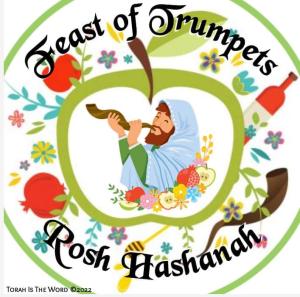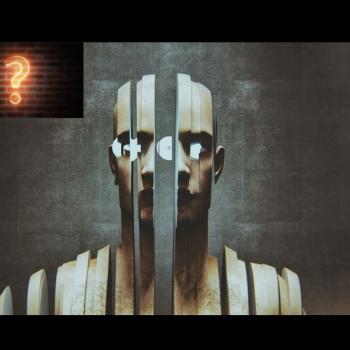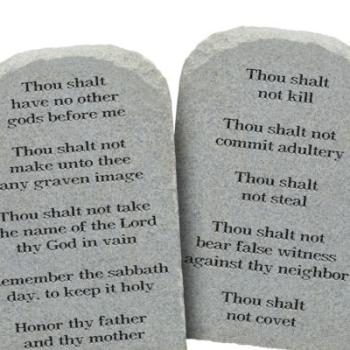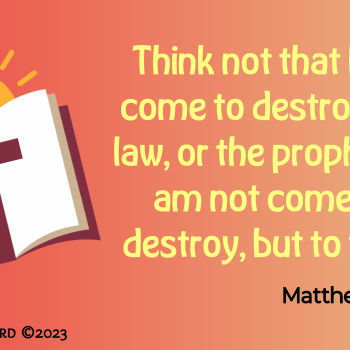The Feast of Trumpets: You Have Been Invited, Will You Attend?
In Leviticus 23, the Lord spoke to Moses telling him, “Speak to the sons of Israel and say to them, ‘the Lord’s appointed times which you should proclaim are holy convocations.'” The Lord then goes on to explain each Appointed Time (Moedim in Hebrew) or Feast Day.
There are seven Biblical Feasts of the Lord:
Passover
Unleavened Bread
First Fruits
Shavuot (or Feast of Weeks or Pentecost)
Yom Teruah (or Feast of Trumpets; aka Rosh Hashanah)
Yom Kippur (or Day of Atonement)
Sukkot (or Feast of Tabernacles)
The annual Feasts are broken up into Spring Feasts (Passover to Shavuot) and Fall Feasts (Yom Teruah to Sukkot).
All of the Lord’s Appointed Times or Moedim point to Jesus (Yeshua HaMashiach). In His death, burial, resurrection and pouring out of the Holy Spirit, Yeshua has fulfilled the true meaning and significance of the Spring Feasts. The Fall Feasts all point to Yeshua’s triumphant Second Coming and have not yet been fulfilled.
Why do we keep the Feasts?
Though they’ve been fulfilled in Him, we continue to observe the Spring Feasts because in Exodus 12, the Lord commands they will be kept throughout the generations and are to be kept forever. In Mark 14 and Luke 22, Yeshua tells us to do Passover in remembrance of Him.
We observe the Fall Feasts because, again, the Feast days are forever, as well as they are a way to prepare and be mindful of Yeshua’s return.
Yom Teruah: The Feast of Trumpets

The Feast of Trumpets is the 5th Biblical Feast but the 1st Fall Feast. It is also the only of all the Feasts to begin on the 1st day of a month, in this instance, the 7th Hebrew month of Tishrei. Because it begins on the 1st day of the month, it is the only Feast whose start is dependant on the sighting of the New Moon. Because of this, in ancient times, it was known as “the day that no one knows,” as no one knew for certain on which day it would begin. If the New Moon wasn’t sighted on the 1st day, as expected due to bad weather, the Feast would be put off until the next day, or when the moon was sighted.
The Day No One Knows… Sound Familiar?
When Yeshua speaks in Matthew 24:36 of His return at end of days, He says no one knows of that day and hour, but only the Father. This points to the Feast of Trumpets – Yom Teruah – being the time Yeshua will return at the trump of the Archangel.
Observing Yom Teruah
In celebration of Yom Teruah, the shofar – a ram’s horn – is joyfully blown throughout the day, along with cheerful praise and shouting, in eager anticipation of our Messiah’s return.
Rosh Hashanah
Yom Teruah is also, and more commonly, known as Rosh Hashanah, the Jewish Civil New Year. Biblically, the new year begins on the 1st day of Abib (aka Nisan), a spring month that lines up with the end of March and encompasses most of April. Nisan is the same month we observe the Spring Feasts of Passover, Unleavened Bread and First Fruits.
The Head of the Year
Rosh Hashanah literally means “the head of the year,” and it is believed in Jewish tradition to be the day God finished creation. It is also a traditional belief that it is on Rosh Hanshanah when our names are written into the Book of Life and ten days later, on Yom Kippur, are sealed in that book. A traditional Rosh Hashanah greeting is, “L’Shanah Tova Tikater V’Tahatem,” and means, “may you be inscribed and sealed for a good year.”
Warning
Be aware that the celebrations and traditions of Rosh Hanshanah are just that- traditions of men. Be careful not to put those traditions above the true meaning of the Biblical Feast of Yom Teruah, the Feast of Trumpets.
This year, Yom Teruah and Rosh Hashanah begin at sundown on September 15, 2023 and end at sundown September 16 and, as a child of God, grafted in to the Olive Tree, you are invited to join the Feast and spend time with our Lord during all of His moedim. Will you RSVP, or miss out on some of the biggest, most significant celebrations of the year?
Shalom!

















